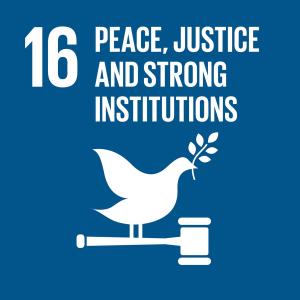With pot shops targeted by criminal gangs, the debate continues over whether the SAFE Banking Act would help, and whether it should be supported before legalization can pass or not.
Footage of our latest human rights and the drug war event.
A virtual event held last summer sheds light on continuing global drug war abuses -- and some means of fighting back.
A fairly quiet week on the medical front, with just a couple of states making some program changes.
SAMHSA announces historic harm reduction grants, South Dakota marijuana legalization campaigners say their signature-gathering campaign is going well, Michigan's governor signs a bill easing burdens on medical marijuana growers, and more.
Member states of the UN's Commission on Narcotic Drugs block a human rights expert from presenting a report on arbitrary detentions, a Missouri bill would end police searches based solely on the odor of marijuana, and more.
No more pre-employment marijuana testing in Philly starting next month, Malta is set to become the first country is Europe to legalize weed this week, and more.
A bad batch of synthetic cannabinoids is sickening people in Florida, Chicago is handing out fentanyl test strips in a bid to bring down record overdose numbers, and more.
A therapeutic psilocybin bill is filed in New York, the prosecutor in Arizona's second most populous county is at least temporarily not prosecuring drug possession cases, and more.
The Senate passed the defense spending bill this week without the SAFE Banking Act (HR 1996) languge, after Senate leaders stripped the provision aimed at allowing state-legal marijuana businesses access to financial services from the bill. The senators, led by Majority Leader Charles Schumer (D-NY), had made it clear for weeks that they wanted to hold off on the banking bill until after Congress passes marijuana legalization.

Surveillance video of robbers hitting an Oakland dispensary in November.
Schumer, along with Sens. Cory Booker (D-NY) and Ron Wyden (D-OR) is pushing his yet-to-be-filed
Cannabis Administration and Opportunity Act, while the House has its own version of a legalization bill, the MORE Act (
HR 3617). But while they managed to remove the SAFE Banking Act from the defense bill, the fight to enact it is not over -- nor is the MORE Act or any other legalization bill poised to get a vote in the Senate, much less to pass it. And therefore the increasingly contentious debate surrounding how best to advance marijuana reforms at the federal level isn't over either.
Debby Goldsberry has been a marijuana reform activist since the late 1980s, as well as being involved in the marijuana industry as a founder of the Berkeley Patients Group (BPG), one of the Bay Area's most successful dispensaries in 2000. She was director of BPG for 11 years before moving on to other dispensaries.
She is currently a consultant with Green Rush Consulting in Oakland and a compliance officer with the Hi-Fidelity marijuana shop in Berkeley, and she says the lack of access to financial services is a problem.
"It is incredibly burdensome," she told the Chronicle. "It's basically destroying the industry. With a lack of access to capital, we have to go to the private market, which gouges us. And having to deal with cash -- there are so many cash transactions -- makes even simple things like accounting more time consuming. You have to do cash counts, cash audits, and of course, more security. It's just more worries."
Being robbed is one of those worries. That's because marijuana dispensaries make attractive targets for burglars, thieves, and robbers. One reason is because they are cash businesses due to being locked out of the banking system. They also stock a valuable commodity -- marijuana -- and they advertise their locations.
Sometimes the attacks come in waves, such as Colorado in 2014 in and in Oklahoma and Oregon last year -- including one robbery in Portland that left a dispensary worker shot dead. And California pot businesses were targeted last summer when at least 40 dispensaries were hit by caravans of burglars in the midst of the protests over the George Floyd killing.
More recently, Northern California has seen dozens of marijuana businesses suffer burglaries or attempted burglaries, including a half dozen in San Francisco's Bayview in October and 15 in Sacramento going into November. That month, it was Oakland's turn, with more than two dozen operators hit, with losses reaching about $5 million.
And it is ongoing. Just last week, Amber Senter, whose marijuana incubator EquityWorks, was targeted in late November, reported that: "The robberies of cannabis businesses in Oakland are still happening. Multiple armed robberies last night."
"It's not just marijuana businesses," longtime California NORML head Dale Gieringer told the Chronicle. "They're going after all sorts of high-end shops, too."
Gieringer said he supported enacting the SAFE Banking Act because he sees that as the most achievable.
"You should take what you can get," he said, adding that he was pessimistic about legalization in this Congress and beyond. "Those bills with social equity provisions won't pass because they won't get a single Republican vote and not even all the Democrats. And they will probably be dead in the next Congress, too."
"I'm a Fabian," Geiringer said. "I believe we can advance incrementally and build on the progress."
"Cash is part of the reason why" the dispensaries are being hit, said Goldsberry, but she said that isn't the only reason.
"There's a lack of equity in the cannabis industry," she said. "Oakland has a long history of rioting based on inequalities and inequities and injustices linked to the war on drugs. As Martin Luther King said, it's the language of the voiceless. Now we have a cannabis industry where the people in the legacy industry can't gain access and it's all run by capitalists. They've taken historical inequality and made it even more unequal. It's not just the cash -- it's easy to store cash in safes you can't steal -- but the perspective is these are people who don't care about us, so we don't care about them, and we rob them."
Still, despite qualms about the evolving nature of the industry, Goldsberry also supports advancing the SAFE Banking Act.
"A change that would allow banking wouldn't just be incremental," said Goldsberry. "It's an essential next building block we need to bring an end to cannabis prohibition. It's too much to ask for it all at once; we're going to have to piecemeal this thing."
Both Goldsberry and Gieringer live in a state where marijuana consumers generally haven't haven't had to worry about federal marijuana prohibition for a quarter-century, since the passage of Proposition 215 and its wide-open language regarding who was eligible for medical marijuana (just about anyone who wanted it). That could make them a bit more sanguine about federal marijuana prohibition even as they bemoan its negative impacts on their industry.
The Drug Policy Alliance (DPA), which has strongly insisted that legalization should be prioritized over access to banking for marijuana businesses, however, remains adamant that the SAFE Banking Act is no substitute for legalization. And it is not even willing to concede that pot shops are a target because of the restrictions on banking.
"While it is true that marijuana businesses have been the recent targets of some high-profile robberies, it is also true that many other businesses with valuable merchandise have also been the victims of robberies in recent weeks," Maritza Perez, director of the DPA's Office of National Affairs, told the Chronicle. "Whether it has been jewelry stores, the Apple Store, or marijuana retailers, the common denominator is not a lack of access to banking services, but rather valuable inventory."
Perez also rejected the notion that passing the SAFE Banking Act could be seen as "getting half a loaf is better than none."
"The implication that SAFE Banking is the equivalent of half of the MORE Act is not something that I agree with," she said. "SAFE does nothing to remove criminal penalties for marijuana or expunge the records of those with marijuana arrests. SAFE does not create a Community Reinvestment Fund to help social equity entrepreneurs and begin to repair communities that have been the targets of generations of racist enforcement of marijuana prohibition. SAFE does not protect immigrants from deportation for engaging in legal marijuana conduct."
Perez also argued that even if the SAFE Banking Act were to pass, the industry would not be out of the financial woods, and that the MORE Act has provisions that the SAFE Banking Act doesn't address.
"Even from a purely industry-focused lens, it would be absurd to say SAFE is half of MORE," she said. "There is no tax relief for regulated marijuana businesses under SAFE, while the MORE Act would effectively end the application of Section 280E, significantly reducing the tax rate for marijuana businesses. Additionally, SAFE would merely provide safe harbor for banks to work with marijuana businesses, but because marijuana would still be federally illegal, banks are unlikely to offer commercial loans to most marijuana businesses. Under SAFE, only multistate operators would likely qualify as credit-worthy for commercial lending, which would widen the existing gap between MSOs and social equity entrepreneurs."
Lacking foreseeable prospects for passing the MORE Act, though, not every advocate will consider such arguments relevant to whether to press for banking access at least in the meanwhile. And so the debate over whether to accept partial reforms, worth "half" of what the MORE Act would be worth or not, will continue. Stay tuned.
back to top
Original invite:
Keeping It Real: Duterte's Drug War Slaughter and the ICC
side event on the online margins of the Assembly of States Parties to the Rome Treaty (ICC)
Wednesday 15 December 2021, 7:00am New York / 1:00pm The Hague / 8:00pm Manila
Zoom registration: https://us02web.zoom.us/meeting/register/tZYrdeqoqTMiGda-kkne8zE-zA9LxojrGwz9
Facebook Live: https://www.facebook.com/77796516946/videos/1743934149133434
YouTube livestream: https://youtu.be/VCwxNrBDwXk
Since taking office in 2016, President Rodrigo Duterte of the Philippines has presided over a drug war extrajudicial killing campaign in which NGOs estimate more than 30,000 people have died. In response to the threat and now reality of an investigation by the International Criminal Court, the Duterte administration has argued the ICC lacks jurisdiction because the Philippines has an accountability process underway. But the scope of the government's investigations, and of any results from them, both remain very small.
"Keeping It Real" will discuss the Philippine Department of Justice's Interagency Task Force, the continuing reality of government orchestrated extrajudicial killings, the administration's recent motion to suspend the ICC investigation, and the incarceration of Duterte critic Senator Leila de Lima as it approaches its five-year mark and as she runs for reelection from jail.

Famous human rights attorney Chel Diokno keynoted our forum.
is Founding Dean of the De La Salle University (DLSU) College of Law, where he served as Dean from 2010-2019; and is Chair of the Free Legal Assistance Group (FLAG), the oldest organization of human rights lawyers in the Philippines. Already prominent in legal circles, Diokno gained greater fame while running for Senate in 2019, especially among Filipino youth, and he is a 1Sambayan coalition candidate for Senate in 2022.
Comments on ICC process by Elizabeth Evenson, Associate Director, International Justice Program, Human Rights Watch
Other commenters to be announced.
co-moderators:
David Borden, Executive Director, StoptheDrugWar.org
Marco Perduca, former Senator, Italy, 2008-2013
Organized by DRCNet Foundation AKA StoptheDrugWar.org, cosponsored by Associazone Luca Coscioni, Ecumenical Advocacy Network for the Philippines, Filipino American Human Rights Alliance, Forum Droghe, other cosponsors TBA.
Register here. Visit https://stopthedrugwar.org/philippines to read about our work in this area.
back to top
Despite significant advances made by governments around the world in humanizing drug control systems since the turn of the century, human rights abuses still seem to be taking place in the course of enforcing drug prohibitions in recent years and, in some cases, have only gotten worse.
The United States continues to imprison
hundreds of thousands of people for drug offenses and imposes state surveillance (probation and parole) on
millions more. The Mexican military rides roughshod over the rule of law, disappearing, torturing, and killing people with
impunity as it wages war on (or sometimes works with) the infamous drug cartels. Russia and Southeast Asian countries, meanwhile, hold drug users in "
treatment centers" that are little more than prison camps.
A virtual event last summer, which ran parallel to the United Nations High-Level Political Forum on Sustainable Development, shined a harsh light on brutal human rights abuses by the Philippines and Indonesia in the name of the war on drugs and also highlighted one method of combating impunity for drug war crimes: by imposing sanctions on individuals responsible for the abuses.
The event, "SDG 16: The Global War on Drugs vs. Rule of Law and Human Rights," was organized by DRCNet Foundation, the 501(c)(3) charity operated by StoptheDrugWar.org, publisher of this newsletter. The "SDG 16" refers to Sustainable Development Goal 16 -- Peace, Justice, and Strong Institutions -- of the UN's 2030 Agenda for Sustainable Development.
Event organizer and executive director of the organization David Borden opened the meeting with a discussion about the broad drug policy issues and challenges being witnessed on the global stage.
"Drug policy affects and is affected by many of these broad sustainable development goals," he said. "One of the very important issues is the shortfall in global AIDS funding, especially in the area of harm reduction programs. Another goal -- Peace, Justice, and Strong Institutions -- is implicated in the Philippines, where President [Rodrigo] Duterte was elected in 2016 and initiated a mass killing campaign admitted by him -- although sometimes denied by his defenders -- in which the police acknowledged killing over 6,000 people in [anti-drug] operations [since 2016], almost all of whom resisted arrests, according to police reports. NGOs put the true number [of those who were] killed at over 30,000, with many executed by shadowy vigilantes."
The International Criminal Court (ICC) has proposed a formal investigation of human rights abuses in the Philippines drug war, but the court seems hampered by a chronic shortfall in funding, Borden pointed out.
"Former prosecutors have warned pointedly on multiple occasions of a mismatch between the court's mission and its budget," he said. "Recent activity at the conclusion of three different preliminary investigations shows that while the prosecutor in the Philippines moved forward, in both Nigeria and Ukraine, the office concluded there should be formal investigations, but did not [submit] investigation requests, leaving it [up to the] new prosecutors [to decide]. The hope is [that the ICC] will move as expeditiously as possible on the Philippines investigation, but resources will affect that, as will the [Philippine] government's current stance."
The government's current stance is perhaps best illustrated by President Duterte's remarks at his final State of the Nation address on July 26. In his speech, Duterte dared the ICC to "record his threats against those who 'destroy' the country with illegal drugs," the Rappler reported. "I never denied -- and the ICC can record it -- those who destroy my country, I will kill you," said Duterte. "And those who destroy the young people of my country, I will kill you, because I love my country." He added that pursuing anti-drug strategies through the criminal justice system "would take you months and years," and again told police to kill drug users and dealers.
At the virtual event, Philippines human rights advocate Justine Balane, secretary-general of Akbayan Youth, the youth wing of the progressive, democratic socialist Akbayan Citizens' Action Party, provided a blunt and chilling update on the Duterte government's bloody five-year-long drug war.
"The killings remain widespread, systematic, and ongoing," he said. "We've documented 186 deaths, equal to two a day for the first quarter of the year. Of those, 137 were connected to the Philippine National Police, the Philippine Drug Enforcement Agency, or the armed forces, and 49 were committed by unidentified assailants."
The "unidentified assailants" -- vigilante death squads of shadowy provenance -- are responsible for the majority of killings since 2016.
"Of the 137 killed, 96 were small-time pushers, highlighting the fact that the drug war is also class warfare targeting small-time pushers or people just caught in the wrong place or wrong time," Balane said.
He also provided an update on the Duterte administration's response to ICC Prosecutor Fatou Bensouda's June 14 decision concluding her preliminary examination of human rights abuses in the Philippine drug war with a request to the ICC to open a formal investigation into "the situation in the Philippines."
In a bid to fend off the ICC, in 2020, the Philippine Justice Department announced it had created a panel to study the killings carried out by agents of the state -- police or military -- but Balane was critical of these efforts.
"[In the second half of 2020], the Justice Department said it had finished the initial investigations, but no complaints or charges were filed," he said. "They said it was difficult to find witnesses [who were willing to testify about the killings], but [the victims'] families said they were not approached [by the review panel]."
The Justice Department is also undercutting the Philippine Commission on Human Rights, an independent constitutional office whose primary mission is to investigate human rights abuses, Balane pointed out.
"The Justice Department said the commission would be involved [in the investigation process by the panel], but the commission says [that the] Justice [Department] has yet to clarify its rules and their requests have been left unanswered," Balane said. "The commission is the constitutional body tasked to investigate abuses by the armed forces, and they are being excluded by the Justice Department review panel."
The Justice Department review is also barely scraping the surface of the carnage, Balane said, noting that while in May the Philippine National Police (PNP) announced they would be granting the review panel access to 61 investigations -- which accounts for less than 1 percent of the killings that the government acknowledged were part of the official operations since 2016 -- the PNP has now decreased that number to 53.
"The domestic review by [the] Justice [Department] appears influenced by Duterte himself," said Balane. "This erodes the credibility of the drug war review by the Justice Department, which is the government's defense for their calls against international human rights mechanisms."
The bottom line, according to Balane, is that "the killings continue, they are still systematic, and they are still widespread."
In Indonesia -- where, like Duterte in the Philippines, President Joko Widodo (Jokowi) also declared a war on drugs in 2016 -- it is not only extrajudicial killings that are the issue but also the increasing willingness of the government to resort to the death penalty for drug offenses.
"Extrajudicial killings [as a result of] the drug war are happening in Indonesia," said Iftitahsari, a researcher with the Indonesian Institute for Criminal Justice Reform, who cited 99 extrajudicial killings that took place in 2017 and 68 that happened in 2018, with a big jump to 287 from June 2019 through June 2020. She also mentioned another 390 violent drug law enforcement "incidents" that took place from July 2020 through May 2021, of which an estimated 40 percent are killings.
"The problem of extrajudicial killings [in Indonesia] is broader than [just] the war on drugs; we [also] have the problem of police brutality," Sari said. "Police have a very broad authority and a lack of accountability. There is no effective oversight mechanism, and there are no developments on this issue because we have no mechanisms to hold [the] police accountable."
Indonesia is also using its courts to kill people. Since 2015, Sari reported, 18 people -- 15 of them foreigners -- have been executed for drug offenses.
"In addition to extrajudicial killings, there is a tendency to use harsher punishment, capital punishment, with the number of death penalties rising since 2016," she said.
Statistics Iftitahsari presented bore that out. Death penalty cases jumped from 22 in 2016 to 99 in 2019 and 149 in 2020, according to the figures she provided during the virtual event.
Not only are the courts increasingly handing down death sentences for drug offenses, but defendants are also often faced with human rights abuses within the legal system, Sari said.
"Violations of the right to a fair trial are very common in drug-related death penalty cases," she said. "There are violations of the right to be free from torture, not [to] be arbitrarily arrested and detained, and of the right to counsel. There are also rights violations during trials, including the lack of the right to cross-examination, the right to non-self-incrimination, trial without undue delay, and denial of an interpreter."
With authoritarian governments such as those in Indonesia and the Philippines providing cover for such human rights abuses in the name of the war on drugs, impunity is a key problem. During the virtual event's panel discussion, Scott Johnston, of the U.S.-based nonprofit Human Rights First, discussed one possible way of making human rights abusers pay a price: imposing sanctions on them individually, especially under the Global Magnitsky Act.
That US law, which was based on one enacted in 2012 to target Russian officials deemed responsible for the death of Sergei Magnitsky in a Russian prison, was expanded in 2016 to punish human rights violators around the globe by freezing their assets or denying them visas to enter the United States. A related law known by its spot in the US Code, "7031(c)," can also be used to deny visas to immediate familly members of the alleged abusers.
"In an era [when]... rising human rights abuses and also rising impunity for committing those abuses [are]... a hallmark of what's happening around the world, we see countries adopting these types of targeted human rights mechanisms [imposing sanctions] at a rate that would have been shocking even five or six years ago," said Johnston. "Targeted sanctions [like the Global Magnitsky Act] are those aimed against specific individual actors and entities, as opposed to countrywide embargos," he explained.
The Global Magnitsky program is one such mechanism specifically targeted at human rights abuses and corruption, and the United States has imposed it against some 319 perpetrators of human rights abuses or corruption, Johnston said. (The most recent sanctions imposed under the act include Cuban officials involved in repressing recent protests in Cuba, corrupt Bulgarian officials, and corrupt Guatemalan officials.)
"We've seen a continued emphasis on using these tools in the transition to the Biden administration, with 73 cases [of sanctions having been reported] since Biden took office," he noted.
And it is increasingly not just the United States.
"The US was the first country to use this mechanism, but it is spreading," Johnston said. "Canada, Norway, the United Kingdom, [and] the European Union all have these mechanisms, and Australia, Japan, and New Zealand are all considering them. This is a significant pivot toward increasing multilateral use of these mechanisms."
While getting governments to impose targeted sanctions is not a sure thing, the voices of global civil society can make a difference, Johnston said.
"These are wholly discretionary and [it]... can be difficult to [ensure that they are]... imposed in practice," he said. "To give the U.S. government credit, we have seen them really listen to NGOs, and about 35 percent of all sanctions have a basis in complaints [nonprofits]... facilitated from civil society groups around the world."
And while such sanctions can be politicized, the United States has imposed them on some allied countries, such as members of the Saudi government involved in the killing of U.S.-based journalist Jamal Khashoggi and in cases of honor killings in Pakistan, Johnston noted.
"But we still have never seen them used in the context of the Philippines and Indonesia."
Maybe it is time.
In addition to the speakers quoted above, our event also included Marco Perduca, representing Associazone Luca Coscioni, who served in Italy's Senate from 2007-2013.
Our event elicited responses from the government on Indonesia, live during the Questions and Comments section; and from the government of the Philippines in writing later. We also had questions and comments from Kenzi Riboulet Zemouli of NGO FAAAT; iDEFEND Philippines Secretary General Rose Trajano; and Gang Badoy Capati, Executive Director of Rock Ed Philippines, who was a speaker on our 2021 HLPF event.
full event video (YouTube playlist):
full event video (single file):
Visit https://stopthedrugwar.org/global and https://stopthedrugwar.org/philippines for information on our international programs.
back to top
A fairly quiet week on the medical front, with just a couple of states making some program changes.
MichiganMichigan Governor Signs Bill to Aid Medical Marijuana Growers. Gov. Gretchen Whitmer (D) has signed into law House Bill 4921, which amends the Michigan Medical Marijuana Licensing Act so that licensed growers only have to submit financial statements to regulators every three years instead of every year, as has been the case. Whitmer said the bill will make financial reporting easier for growers.
New Jersey
New Jersey Regulators Approve Provisional Licenses for 30 New Medical Marijuana Dispensaries. Finally, state regulators have provided provisional licenses to 30 applicants seeking to run medical marijuana facilities. So far, there are only 23 such facilities in the state, leading to high prices and supply bottlenecks for patients, who are not permitted under state law to grow their own. Provisional licensees still have to pass background checks and win site approval before they can open for business.
back to top
SAMHSA announces historic harm reduction grants, South Dakota marijuana legalization campaigners say their signature-gathering campaign is going well, Michigan's governor signs a bill easing burdens on medical marijuana growers, and more.

These will be effectively banned in New Zealand as the country raises the legal smoking age each year. (Creative Commons)
South Dakota Legalization Campaign Has Collected 15,000 Signatures for 2022 Initiative. South Dakotans for Better Marijuana Laws (SDBML), the campaign that has worked since 2019 to legalize recreational and medical cannabis in the state, announced Thursday that it has collected over 15,000 signatures for its proposed 2022 recreational cannabis legalization initiative. A 2022 initiated measure requires 16,961 valid signatures from registered South Dakota voters to qualify for the November 2022 ballot. The campaign says its goal is to gather 25,000 raw voter signatures. It has until May 3, 2022 to get them. The same group sponsored last year's Amendment A legalization initiative, which was recently ruled unconstitutional by the state Supreme Court. "In light of the extremely flawed Amendment A ruling, we hope that the South Dakota legislature will enact a cannabis legalization law in the upcoming session. But if that does not occur, we will give South Dakota voters the opportunity to approve legalization at the next election. We will not stop working until the will of the people is respected," said campaign spokesman Matthew Schweich.
Medical Marijuana
Michigan Governor Signs Bill to Aid Medical Marijuana Growers. Gov. Gretchen Whitmer (D) has signed into law House Bill 4921, which amends the Michigan Medical Marijuana Licensing Act so that licensed growers only have to submit financial statements to regulators every three years instead of every year, as has been the case. Whitmer said the bill will make financial reporting easier for growers.
Harm Reduction
SAMHSA Announces Unprecedented $30 Million Harm Reduction Grant Funding Opportunity to Help Address the Nation's Substance Use and Overdose Epidemic. The Substance Abuse and Mental Health Services Administration (SAMHSA) is now accepting applications for the first-ever SAMHSA Harm Reduction grant program and expects to issue $30 million in grant awards. This funding, authorized by the American Rescue Plan, will help increase access to a range of community harm reduction services and support harm reduction service providers as they work to help prevent overdose deaths and reduce health risks often associated with drug use.
SAMHSA will accept applications from State, local, Tribal, and territorial governments, Tribal organizations, nonprofit community-based organizations, and primary and behavioral health organizations. Providing funding and support for innovative harm reduction services is in line with the Biden-Harris Administration's ongoing efforts to address the overdose epidemic, and is a key pillar for the first time in the multi-faceted Health and Human Services' overdose prevention strategy announced in October.
This funding allows organizations to expand their community-based overdose prevention programs in a variety of ways, including distributing overdose-reversal medications and fentanyl test strips, providing overdose education and counseling, and managing or expanding syringe services programs, which help control the spread of infectious diseases like HIV and hepatitis C. To apply to this grant funding opportunity, click here.
Los Angeles Times Editorial Board Endorses Safe Injection Sites. Under the headline "New York City is saving people from drug overdose deaths. Why can't California?" the editorial board of the Los Angeles Times endorsed safe injection sites as an overdose prevention measure and called on the Biden administration to clarify that it supports the harm reduction measure: "The Biden administration could also help by giving a clear statement that it supports states taking action to curb drug overdoses and that it won't move to shut down the overdose prevention centers in New York City or anywhere else. That's really the only rational and humane course of action in the face of a plague of preventable deaths."
Washington State Senator Files Bill to Specify That Fentanyl Testing Equipment is not Drug Paraphernalia. State Sen. Jim Honeyford (R-Sunnyside) has filed a bill, Senate Bill 5509, that would exempt fentanyl testing equipment from being defined as drug paraphernalia. State law currently defines paraphernalia as "testing equipment used, intended for use, or designed for use in identifying or in analyzing the strength, effectiveness, or purity of a controlled substance." But public health agencies and needle exchange programs are already distributing fentanyl test kits. This bill would align the law with reality. Honeyford should not be mistaken for a drug reformer; he is also planning to file a bill enabling prosecutors to charge people with murder if they sell drugs that result in a fatal overdose.
International
New Zealand to Ban Cigarettes by Constantly Rising Smoking Age. The country aims to eliminate cigarette smoking by raising the legal age for smoking, currently set at 18, by one year each year beginning in 2027. That means people born after 2009 will never be able to legally purchase cigarettes. New Zealand already boasts the world's highest cigarette prices at $24 a pack and is also planning to reduce nicotine levels in cigarettes and cut back on the number of tobacco retailers. The plan does not have universal support, though. MP Karen Chour, of the libertarian-leaning Act Party, said the move would lead to a black market. "Prohibition has never worked -- in any time or place -- and it always has unintended consequences," she said.
back to top
Member states of the UN's Commission on Narcotic Drugs block a human rights expert from presenting a report on arbitrary detentions, a Missouri bill would end police searches based solely on the odor of marijuana, and more.

Canadian civil society groups have a plan to decriminalize drug possession. (Creative Commons)
National Poll: Marijuana Legalization Supported by Majorities of All Age Groups. A new YouGov America poll has support for marijuana legalization at 57 percent, with majority support in every age group. Support among Democrats was at 70 percent, while among Republicans it was only 40 percent. While the poll shows continuing strong support for marijuana legalization, it comes in a few points lower than other recent national polls on the issue.
Missouri Bill Would End Warrantless Searches Based Solely on Odor of Marijuana. Rep. Ian Mackey (D-Richmond Heights) has filed legislation, House Bill 1867, that would bar police from using the odor of marijuana as justification for a warrantless search. Here's the bill language in its entirety: "Notwithstanding any provision of law, the odor of marijuana alone shall not provide a law enforcement officer with probable cause to conduct a warrantless search of a motor vehicle, home, or other private property." As Rep. Mackey noted: "Medicinal marijuana is legal in Missouri. It makes sense because of these new laws [the smell of marijuana alone] should not be a justifiable reason for a police officer to begin searching property or a particular individual."
Medical Marijuana
New Jersey Regulators Approve Provisional Licenses for 30 New Medical Marijuana Dispensaries. Finally, state regulators have provided provisional licenses to 30 applicants seeking to run medical marijuana facilities. So far, there are only 23 such facilities in the state, leading to high prices and supply bottlenecks for patients, who are not permitted under state law to grow their own. Provisional licensees still have to pass background checks and win site approval before they can open for business.
International
On International Human Rights Day, UN Drugs Body Silences UN Human Rights Expert on Groundbreaking Report. In an unprecedented, last-minute decision, the lead UN drugs body has blocked the presentation of a report from a group of independent human rights experts that calls out governments for serious human rights abuses committed in the war on drugs. The UN's lead drug policy-making body has slammed the door on human rights expert Dr Elina Steinerte, Chair of the UN Working Group on Arbitrary Detention, who was due to present a watershed study on how drug control policies drive an epidemic of arbitrary detention across the world. She has been blocked from addressing the UN Commission on Narcotic Drugs today, 10th December, which is coincidentally International Human Rights Day, and her statement has been merely published online.
The last-minute decision, which led to a contentious exchange during the session, was reached through an opaque, closed-door process that kept the human rights experts in the dark about their exclusion until today. The report sheds light on the arrest and incarceration of millions of people around the world for drug-related offences, including for drug use. People who use drugs are also routinely held against their will in so-called "rehab centers," where they are often subject to degrading and inhumane treatment, including forced labor.
With Thursday's decision, the Commission on Narcotic Drugs stands in defiance of the Human Rights Council - the main UN human rights body -- which had asked human rights experts to produce the very same report that now has been stonewalled.
Canadian Civil Society Groups Release Drug Decriminalization Platform.In the wake of almost 23,000 drug poisoning deaths since 2016, twenty-one civil society organizations across the country, including groups of people who use drugs, families affected by drug use, drug policy and human rights organizations, frontline service providers, and researchers, have collaborated to release Canada's first civil society-led policy framework for drug decriminalization in Canada.
Decriminalization Done Right: A Rights-Based Path for Drug Policy seeks to end the harmful and fatal criminalization of people who use drugs -- which has fueled unprecedented overdose deaths -- and protect the health and human rights of all people in Canada. The comprehensive platform, endorsed by more than 100 organizations calls for the full decriminalization of all drug possession for personal use -- as well as sharing or selling of drugs for subsistence, to support personal drug use costs, or to provide a safe supply -- by repealing or amending sections of Canadian drug laws, removing all sanctions linked to possession or "necessity trafficking," tighten rules around when police can stop, search, and investigate someone for drug possession, and shift resources away from law enforcement to non-coercive policies, programs, and services that protect people's health and human rights.
back to top
No more pre-employment marijuana testing in Philly starting next month, Malta is set to become the first country is Europe to legalize weed this week, and more.

assassinated Haitian President Jovunel Moïse
Philadelphia Ban on Pre-Hire Marijuana Testing Takes Effect on January 1. An ordinance passed by the city council in April and signed into law by Mayor Jim Kenney (D) that bars employers from requiring potential hires to submit to pre-employment testing for marijuana will go into effect on January 1. The ban does not address testing of current employees, nor does it stop employers from firing people for being high on the job or having marijuana at the workplace. There are some exceptions to the ban: law enforcement positions, jobs requiring a commercial drivers license, and child care and health care workers.
St. Louis Mayor Signs Bill Repealing Marijuana Laws. Mayor Tishaura Jones (D) has singed Board Bill 132, which repeals the city's laws related to the possession of small amounts of marijuana and paraphernalia. "We are seeing a major shift in the way our country sees not just marijuana, but how it connects to public safety, incarceration, and economic opportunity in our communities," said Mayor Jones. "This law will help reduce racial disparities in our policing, make our city safer, and make St. Louis more competitive in hiring for city positions." Of 600 people arrested on marijuana charges in the city in the last three years, nearly 500 were black, the mayor's office said.
International
Haiti's Leader Kept a List of Drug Traffickers; His Assassins Came for It. Assassinated Haitian President Jovenal Moïse was moving against drug and arms smugglers, and that may be what is behind his murder, The New York Times reports: "Before being assassinated in July, he had been working on a list of powerful politicians and businesspeople involved in Haiti's drug trade, with the intention of handing over the dossier to the American government, according to four senior Haitian advisers and officials tasked with drafting the document.
The president had ordered the officials to spare no one, not even the power brokers who had helped propel him into office, they said -- one of several moves against suspected drug traffickers that could explain a motive for the assassination." When the gunmen who killed him burst into his residence, they stayed long enough to search through his files for his list of suspected drug traffickers, which one of the captured gunmen said was a key target.
"I would be a fool to think that narco-trafficking and arms trafficking didn't play a role in the assassination," said Daniel Foote, who served as the US special envoy to Haiti before stepping down last month. "Anyone who understands Haiti's politics or economics understands this." Some of the traffickers are linked to former President Michel Martelly, and his brother-in-law, Haitian businessman Charles Saint-Remy, at whom many fingers are being pointed, has been named by the DEA as a suspected drug trafficker.
Malta Set to Legalize Marijuana This Week, Would Be First in Europe. The Maltese parliament is set to approve a marijuana legalization bill Tuesday that the president has already promised to sign into law. People 18 and up could possess up to seven grams (a quarter ounce) and grow up to four plants. Home growers could possess up to 50 grams of their harvest at home. The bill does not envision commercial sales, but instead would allow for non-profit cooperatives to grow and distribute marijuana to members.
back to top
A bad batch of synthetic cannabinoids is sickening people in Florida, Chicago is handing out fentanyl test strips in a bid to bring down record overdose numbers, and more.

Meth seized in Nebraska. No, it was not cooked by Breaking Bad's Heisenberg. (netnebraska.org)
UFCW Gains Another Victory in Marijuana Industry Unionization Drive. An ongoing drive by the United Food and Commercial Workers (UFCW) gained another victory this week as 70 employees of the four-store Sweet Flower Cannabis chain in Southern California voted to join the union. The chain just got a license for a fifth shop in Culver City, and staff there will also be able to join the union under a labor peace agreement. The UFCW has won several other unionization votes in California this year, as well as at pot businesses in Illinois, Massachusetts, New Jersey, and New York. The union represents about 10,000 workers in the industry. The Teamsters are also active in unionizing the industry, winning victories in California and Illinois.
Methamphetamine
Senate Passes Grassley, Feinstein Methamphetamine Bill. The Senate on Monday passed the Methamphetamine Response Act of 2021 (S. 854), legislation introduced by Senators Dianne Feinstein (D-CA) and Chuck Grassley (R-IA). The bill designates methamphetamine as an emerging drug threat and directs the Office of National Drug Control Policy (ONDCP -- the drug czar's office) to implement a plan to address the rising use of methamphetamine. The bill "requires ONDCP to develop, implement and make public, within 90 days of enactment, a national emerging threats response plan that is specific to methamphetamine." The same bill passed the Senate last year but failed to move in the House.
Synthetic Cannabinoids
Severe Bleeding From 'Spice' Synthetic Cannabinoid Leaves 35 Hospitalized in Florida. At least 35 people in the Tampa Bay area have recently been hospitalized with severe bleeding after ingesting the synthetic cannabinoid "Spice," the state's poison control center reported. Victims have reported bruising, nosebleeds, bleeding gums, vomiting blood, blood in urine and stool, and heavy menstrual bleeding -- symptoms associated with a condition known as coagulopathy, where the blood's ability to clot is impaired.
The exact cause of the bleeding was not stated. According to the National Institute on Drug Abuse, "...chemicals [in synthetic marijuana] are often being changed as the makers of spice often alter them to avoid drug laws, which have to target certain chemicals." Similar reactions in a 2018 incident involving Spice were attributed to the chemical brodifacoum having been added.
Florida has not legalized marijuana and allows only limited access to medical marijuana.
Harm Reduction
Chicago Now Passing Out Free Fentanyl Test Strips. With fentanyl now linked to most opioid overdose deaths in the city, the Chicago Department of Health has begun offering free fentanyl test strips to the public. The program first began in October, and so far, more than 7,000 strips have been distributed, mostly through harm reduction organizations. The Cook County Department of Public Health is also distributing fentanyl test strips in the city and its suburbs. Cook County registered a record number of opioid-related deaths in 2020.
back to top
A therapeutic psilocybin bill is filed in New York, the prosecutor in Arizona's second most populous county is at least temporarily not prosecuring drug possession cases, and more.

flag of Malta
New York Assemblyman Files Bill to Allow Therapeutic Psilocybin Use. Assemblyman Pat Burke (D) has filed a bill that would legalize psilocybin mushrooms for therapeutic purposes and create facilities where the mushrooms could be grown and provided to patients. It is a set-up similar to what Oregon voters approved last year. The bill provides a list of qualifying medical conditions but also says psilocybin could be recommended "for any conditions" certified by a practitioner. The Department of Health would be responsible for providing a training course for practitioners and licensing the psilocybin centers.
Harm Reduction
New York GOP US Representatives Back Bill to Defund Safe Injection Sites. Republican members of the state's congressional delegation are lining up behind a bill from one of their own, Rep. Nicole Malliotakis (R-Staten Island), that aims to cut funding for group and governments that open safe injection sites. The bill is a response to the opening this month of the first officially acknowledged safe injection sites in the US in New York City. Her bill, the Defund de Blasio's Injection Sites Act of 2021 is being cosponsored by New York Republican Reps. Andrew Garbarino, John Katko, Claudia Tenney. And Lee Zeldin. They argue that safe injection sites violate the Controlled Substances Act, citing an appeals court ruling in January that blocked the opening of such a site in Philadelphia. "Gifting money to heroin shooting galleries that only encourage drug use and deteriorate our quality of life is an egregious abuse of taxpayer dollars," Malliotakis said, reprising a longstanding conservative position that does not recognize any benefit from such harm reduction practices.
Law Enforcement
Amidst Surging COVID Cases, Arizona's Pima County Will No Longer Prosecute Drug Possession Cases. Pima County (Tucson) Attorney Laura Conover (D) announced Tuesday that she will temporarily stop prosecuting drug possession cases because of pandemic-related risks. She said the policy will be in effect for at least 60 days "to protect both Pima County jail employees and people who are detained against the surging threat of COVID." Also included are people caught with drug paraphernalia or those in "related personal-use incidents."
A sizeable percentage of (society) has expressed disinterest in the vaccine, depriving us of the herd immunity that would have put this virus behind us," Conover wrote in a memorandum to law enforcement officials. "COVID is now spreading inside the jail, putting people there at risk. The health and safety of our community are paramount." The move comes as county officials prepare to fire hundreds of corrections officers who refused to get vaccinated.
International
Malta Legalizes Marijuana, First European Union Nation to Do So. Members of the Maltese Parliament on Tuesday approved a bill legalizing marijuana, becoming the first European Union country to make the leap. The law allows citizens 18 and over to possess up to seven grams of marijuana and cultivate up to four plants at home, harvesting up to 50 grams from them. The law also allows nonprofit cooperatives to produce marijuana to be sold to members, with an upper limit on membership per coop of 500. President George Vella supported the measure and is set to sign it later this week.
back to top








